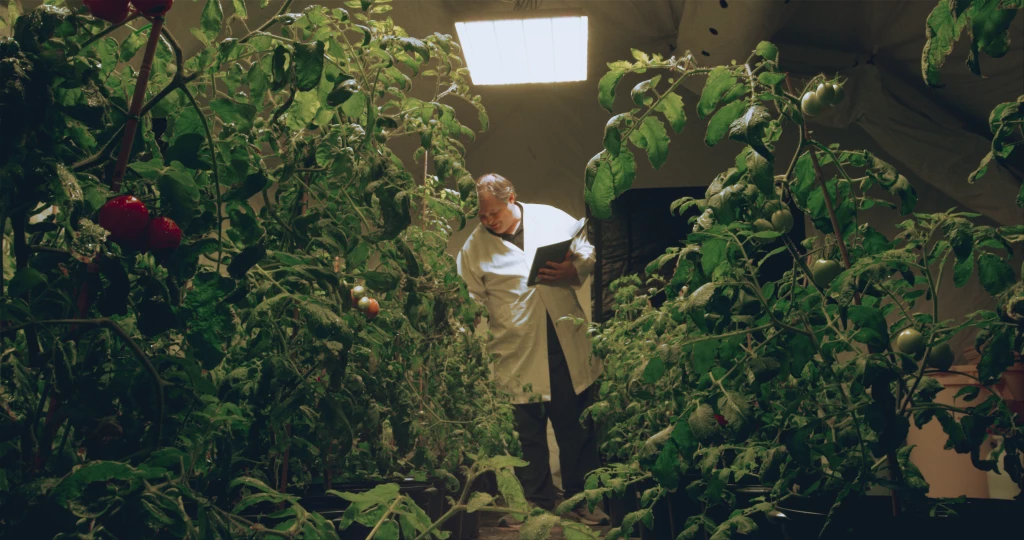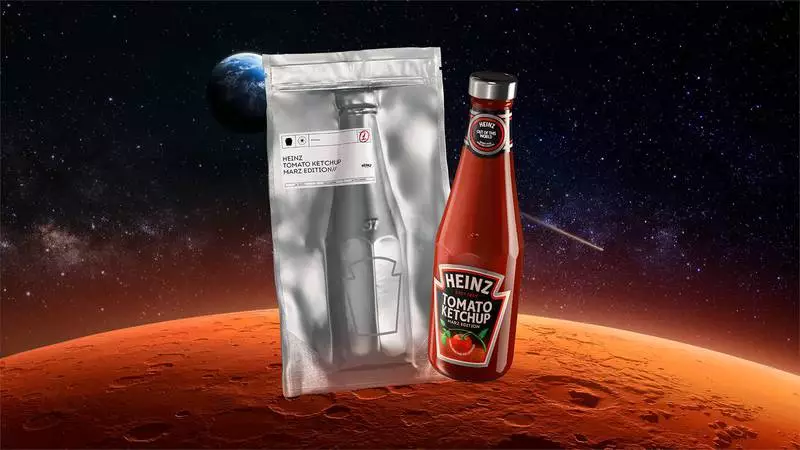Thanks to a pilot project by Heinz and a team of researchers led by Andrew Palmer at the Florida Institute of Technology, when astronauts set up outposts on Mars they may be able to make their own ketchup using locally grown tomatoes.
One of the biggest hurdles to launching even limited expeditions to Mars is the massive problem of logistics. If astronauts have to carry all the fuel, propellants, air, water, spare parts, and food for a trip that could take over two years, it would require a small fleet of huge ships that are basically spacefaring freighters and tankers.
To overcome this, planners are putting a lot of emphasis on the idea of living off the land so that crews can use Martian resources to produce what they need. One example of this is finding ways to grow food in the soil of the Red Planet, just like Matt Damon's character in the science fiction thriller The Martian.

All that Damon grew in his fictitious Mars habitat were potatoes, but Heinz wants to provide future "Martians" with real ketchup to go with them. To demonstrate this, the company has unveiled its Heinz Tomato Ketchup, Marz Edition, which was made from tomatoes that were grown under the same condition as would be found at a Mars outpost.
The result of a two-year collaboration with Florida Tech, the research team used a greenhouse called the Red House to grow an initial batch of 30 tomato plants selected from Heinz's large seed catalog. These were planted in 7,800 lb (3,538 kg) of Martian analog soil gathered from the Mojave desert and illuminated with red LED lights. They were also grown in the atmosphere, temperature control, and regular irrigation that would be expected in an outpost's greenhouse on Mars.
An initial pilot study involving 30 plants and a follow-up effort where the team planted 450 tomato plants in individual buckets took 2,000 hours. The result was hundreds of tomatoes, but the technique is far from perfected because the expanded test had a poorer yield. This indicates that Martian tomato farming could be improved by growing the plants in troughs instead of pots, introducing a wider variety of microbes, and adding various plants to impair the spread of diseases.

The harvested tomatoes were used by Heinz to produce a limited run of prototype bottles of Heinz Tomato Ketchup, Marz Edition at its California research facility, one of which was flown to an altitude of 23 miles (37 km), where it was subjected to temperatures of -94 °F (-74 °C). As to how the out of this world ketchup tastes, only a handful of people working at Heinz know.
In addition to helping the first Mars explorers make their fries a bit more palatable, the research can also help people back on Earth grow food in marginal soils.
"What this project has done is look at long-term harvesting of food," says Palmer. "Achieving a crop that is of a quality to become Heinz Tomato Ketchup was the dream result and we achieved it. Working with the Tomato Masters at Heinz has allowed us to see what the possibilities are for long-term food production beyond Earth. There is much we can learn by working with one of the biggest food companies worldwide."
The video below introduces Heinz Tomato Ketchup, Marz Edition.
Source: Florida Institute of Technology








